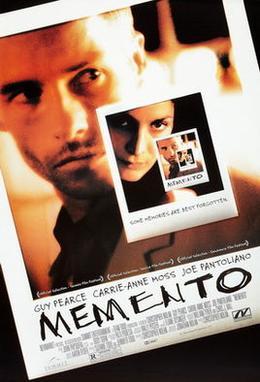Can watching movies help me learn English faster?
The fastest way to learn English is by attending an Intensive English Program in the US or online. You learn English fast by total immersion in the language and culture 24/7.
But easier said than done, right?
If you’re stuck at home wondering how to learn English fast, you can improve your English with the help of Netflix, Amazon Prime Video, or HBO Max. Say what?
The good news is that you can learn English words, learn conversational English, and even learn academic and business English by watching movies.
Films immerse you in the English vocabulary of school or work in the US and the accents spoken in university cities like Boston or New York. Films introduce you to cultural icons of Hollywood, popular knowledge of American history, and common accents from the fifty states of the USA.
Unlike real life, you can pause, repeat, and practice the English speech you hear in a movie. Unlike real conversations, movie dialogue is under your control to stop, study, and replay.
You may ask yourself, “How can I learn English faster?” The answer lies in practical experience.
Besides the practical experience of real world conversations, the authentic dialogue of movies exposes you to practical English.
With movies you can experience the sounds of natural English. Pausing the video, taking notes in a movie journal, and repeating dialogue, you can learn new English vocabulary. You can imitate relaxed pronunciation.
You can see and hear how people talk at a dinner table, in an office, and at a party.
Nothing may ever make learning English easy, but you can make it more entertaining. There’s even data science that examines which movies are best to learn English.
So, grab some popcorn and get comfortable to learn English.
Good Will Hunting: American English in Boston, Massachusetts
A great way to learn conversational English is to study a film that takes place in a specific city. You can learn cultural references and interesting idioms. Films record spoken accents and daily rhythms of real world English.
The 1997 Oscar-winning American film Good Will Hunting turned Matt Damon and Ben Affleck into huge Hollywood stars.
Matt Damon was born and grew up in Boston, and Ben Affleck grew up in Cambridge, Massachusetts, so they both know the area well. They speak the local accent and inhabit the settings with ease.
Not only did they act in the film but they also wrote the script about an M.I.T. janitor who happens to be a math genius. He struggles to find his identity with the help of a psychologist, a new girlfriend, and his best friend.
If you plan to go to university in Boston or New England, you can preview the local sights and sounds by spending time with this movie. You hear the kind of conversational English spoken in neighborhoods where Massachusetts natives, out-of-towners, and international students live together. Movies like Good Will Hunting depict real life for students and residents alike.
You see the Red Line train that carries commuters across the Charles River. You travel from the gritty neighborhoods of South Boston to the brightly lit labs of M.I.T.
Humorous scenes in Good Will Hunting show you the pubs of Harvard Square where international students mingle.
Dramatic scenes reveal typical lecture halls, professor offices, and campus buildings you might see at many US universities.
Good Will Hunting is the perfect movie to learn English before going to university in New England or Boston, Massachusetts.
You can also pick up some fun idioms. Several American idioms use the word apples, a favorite fruit around the USA, especially in Massachusetts.
 For instance, take the expression, “How you like them apples?” You say it jokingly when you have embarrassed somebody else, or proved them wrong, or made them look like a fool, or defeated them.
For instance, take the expression, “How you like them apples?” You say it jokingly when you have embarrassed somebody else, or proved them wrong, or made them look like a fool, or defeated them.
When Matt Damon’s character succeeds in getting the beautiful Mini Driver’s phone number in the bar, he shows the paper to his jerky rival.
Dirty Rotten Scoundrels: British vs. American English
The two most common types of English are British English and American English. The main differences lie in spelling, vocabulary, and, most importantly, pronunciation.
The American comedy Dirty Rotten Scoundrels stars the British actor Michael Caine and the American actor Steve Martin as two criminals. The crazy story takes many humorous twists as the two thieves attempt to steal money. You’ll never guess the surprise ending.
While enjoying the clever story, you hear good examples of a British pronunciation and American pronunciation.
The British criminal is educated and suave. Actor Michael Caine is famous for his memorable British accent. Specifically, he has a Cockney accent, which is a dialect associated with the city of London.
One feature of the Cockney accent specifically and the British accent generally is that the –er ending of a word drops the sounds of the r. Thus, shower sounds like “showa.”
In contrast, a standard American accent will clearly pronounce the -er in shower: “showERRRR”
Another feature of the Cockney accent is that “h” is dropped from the beginning of a words. The hat on your head becomes the ‘at on your ‘ead.
In contrast to the British criminal, the American criminal is loud and unsophisticated. Actor Steve Martin speaks in a clear standard North American accent with typical long and short vowels.
American accent with typical long and short vowels.
When you listen to the two characters talk back and forth, your ears tune into the differences. Hearing is believing.
Here’s Steve Martin, who often plays silly characters who make funny voices with strong American accents.
Is English easy to learn?
Of course English isn’t easy. Every language presents challenges.
One difficult aspect of learning English is the pronunciation, which so often differs from the spelling.
What’s more, real world pronunciation differ among cities, from New York to Los Angeles, not to mention college towns in states like Georgia, Texas, or Michigan.
Take the Boston accent, which you hear in the movie Good Will Hunting. While typical North American English has a strong “r” sound, the Boston accent often drops the “r.”
For example, a Boston native might not pronounce the “r” sounds in Harvard. It may sound more like “Havahd.” Or a park may sound like “pahk.”
A famous example sentence is “Park the car in Harvard Yard,” which a Boston accent would change to “Pahk the cah in Havahd Yahd.”
In this way, some New England accents actually resemble the old British accent, which also has a weaker “r” pronunciation than the standard North American accent that you may study in an English class and hear on CNN Student News.
When you learn to speak American English, you do not need to speak regional accents such as the dropped “r” of the Boston accent or the twang of a Texas drawl.
On the contrary, your goal is to master standard pronunciation. This is the English pronunciation used in an English intensive program, on an English like the IELTS or TOEFL, or by journalists on the national news in the US.
But you do need to listen and understand people who speak accents. Professors at school or
colleagues and supervisors at work may have different accents. The accents could come from from England in the U.K. or New England in the U.S.A.
Or Atlanta, Georgia with its classic old southern accent. (check out the TV show Atlanta.) Or Fargo, North Dakota (check out the movie and TV show Fargo ) with its famous Norwegian-influenced accent.
Here are three more classic American movies to learn conversational English, learn U.S. culture, and learn English words and expressions.
Most of all, you can hear natural English pronunciation in memorable dramatic contexts. Remember, when you ask yourself, “How can I learn English faster?”, focus on practical English and natural pronunciation.
Since so many American have seen these movies, they also make great topics for small talk and give you something in common with native speakers of all ages.
- Forest Gump gives an entertaining crash course in U.S. history. You can prepare for your university program in the U.S. by learning about the cultural changes and key historical events of the 20th Century.
Plus, the title character played by Tom Hanks is mentally slow, which makes him sympathetic. His speech is simple and easy to understand. His grammar is clear and his emotions are easily relatable. In general, Tom Hanks is well known as a likable and easy to understand actor, so check out more of his popular movies too.
- Social Network tells the story of Facebook, a topic which we can all
 relate to. You can pick up lots of vocabulary related to computers and technology.
relate to. You can pick up lots of vocabulary related to computers and technology.
The characters tend to speak quickly but in a natural, clever way, like many young college students. You won’t get bored following the realistic dialogue.
- Memento has a complicated story but uses simple vocabulary. The movie is a murder mystery about a man with no short-term memory. In fact, there are two stories at the same time: one story story goes
 forward while the other runs backward. It will definitely hold your interest.
forward while the other runs backward. It will definitely hold your interest.
Despite the complexity of the plot, the vocabulary is ideal for a B1 (Intermediate) English user. According to data science, the movie ranks high as a top movie to study English. Understanding the dialogue depends on you understanding vocabulary rated A1 to B1 (beginner to intermediate) by Oxford 3000 and 5000, which lists the most important words to learn in English.
What’s the best way to learn English with movies?
First off, it’s important that you watch whatever movies you enjoy. Drama? Thriller? Romantic comedy? Documentary? Horror? Choose your favorite genre.
If you love the movie, you’ll be motivated to watch it repeatedly with interest.
Better yet, choose films you know well. If you’ve already seen the movie in your language, you can focus on understanding the English itself.
If you already grasp the gist of a conversation, you may notice the subtleties of intonation, word choice, and interpersonal dynamics in the scenes. Revisiting cinematic favorites prevents confusion
Watching movies to learn English is not a marathon, but a series of sprints. You don’t have to watch the whole 2-hour epic in one sitting.
Break up the movie into smaller pieces. If you find waiting English movies tiring or frustrating–which is only natural, since English isn’t easy–watch in 30 minute parts.
Before pressing play again, grab a snack, go for a walk, or even take a day off.
Another way to liven up movie nights is to watch with friends. Using one another as English dictionaries, you and partners can read subtitles, pause scenes, and practice speaking the dialogue as if in real life.
Learning English with movies doesn’t have to be a solo activity. However, when you’re alone, keeping a movie journal with useful vocabulary, memorable quotes, and plot summaries will help you remember.
Meanwhile, feel free to use English subtitles. Nope, it’s not cheating!
Pause and look up important words. However, don’t worry about understanding every utterance perfectly. Just follow the main ideas while paying attention to the natural speed, stress, and intonation of the dialogue.
In fact, subtitles help you practice speaking out loud. Repeat whole phrases in a confident voice. Copy the pronunciation and feeling of the actors. Copy the body language too, like hand gestures and facial expressions.
Repeat, repeat, repeat. Use that rewind button freely. Replay the part that you didn’t catch. Listen again to the verbal exchanges you missed.
Don’t be embarrassed. In a classroom, you may feel weird acting out English, but in your room, you can feel comfortable repeating crazy dialogue, changing your voice, or moving your hands like a native speaker.
Once you’ve watched your favorite movie 3 or 4 times with or without subtitles, replayed difficult parts, repeated key phrases verbally, taken notes in your movie journal, shared with your friends, and paused when you stopped enjoying yourself, now it’s time to take a long break from the movie.
Then, finally, a couple weeks later, watch the movie again, one last time, with no subtitles, no journal, no breaks–and no problem.
This time you can experience the film like a native speaker, enjoying the thrills, laughter, and tears in English.
As you look for more movies to have fun learning English faster, check out the most popular movies on IMDb (Internet Movie Database.) By picking popular movies, you’re more likely to pick a winner that you enjoy–and that you can talk about with friends in English.
Related Articles
- May in the intensive English program
- How many hours does it take to learn English?
- How to get ready for an English interview?
- Best TV shows to improve your English while enjoying yourself
- Top 5 really easy tips and tricks to enjoy mastering your English
- ESL classes: What are the objectives and aims of English language students?
- An interview with MJ Adams, an international host and global citizen
- ILI’s Chris and Janelle write about boosting student talk time on the International English Language Testing System (IELTS) blog!
- Literate mending in multilingual families
- The Terrific Trio

 relate to. You can pick up lots of vocabulary related to computers and technology.
relate to. You can pick up lots of vocabulary related to computers and technology.  forward while the other runs backward. It will definitely hold your interest.
forward while the other runs backward. It will definitely hold your interest.